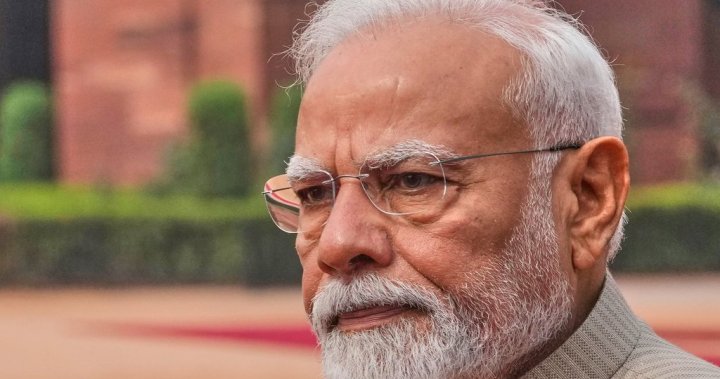I’ve been following this diplomatic storm since October’s revelations about Prime Minister Modi’s alleged connections to foreign interference in Canada. Yesterday’s press conference with Jagmeet Singh marked a significant escalation in opposition response to what many are calling an extraordinary diplomatic misstep.
Standing before reporters at the NDP caucus meeting in Ottawa, Singh didn’t mince words. “It is outrageous that the Prime Minister would invite Modi to Canada after CSIS has confirmed direct links between his government and the killing of a Canadian on Canadian soil,” he declared, his voice carrying both personal conviction and political calculation.
The controversy stems from last week’s announcement that Mark Carney, chair of the upcoming G7 summit in Muskoka, had extended an invitation to India’s Prime Minister Narendra Modi as part of the outreach program to non-G7 nations. This decision has inflamed tensions that have been simmering since the RCMP and CSIS investigations linked Indian government agents to the 2023 murder of Hardeep Singh Nijjar in British Columbia.
For those who haven’t been tracking this story closely, the diplomatic relationship between Canada and India has deteriorated dramatically over the past year. In September, Prime Minister Trudeau made the extraordinary claim in Parliament that Canadian intelligence had credible evidence of Indian government involvement in Nijjar’s assassination. India vehemently denied these allegations, calling them “absurd” and “politically motivated” according to statements from India’s External Affairs Ministry.
The fallout was swift. Both nations expelled diplomats. Trade talks froze. Visa processing for Canadians slowed to a crawl. Then came last month’s bombshell—court documents revealed that CSIS had intercepted communications directly implicating officials connected to Modi’s government in the plot.
“This isn’t about diplomacy anymore,” Singh argued yesterday. “This is about Canadian sovereignty and whether we stand up when foreign governments target Canadians.”
The NDP leader’s concerns reflect genuine security questions but also speak to the political dynamics at play. With a sizable Sikh constituency in several key ridings, particularly in British Columbia’s Lower Mainland and parts of Ontario, the NDP has positioned itself as the strongest voice on this issue. Recent polling from Abacus Data suggests 68% of Canadian Sikhs believe the government hasn’t responded firmly enough to India’s alleged actions.
Political scientist Stephanie Carvin from Carleton University told me this puts the Liberals in a difficult position. “The government is trying to balance multiple competing interests—maintaining international relationships while responding to serious allegations of foreign interference,” she explained during our phone conversation yesterday.
Carney, for his part, defended the invitation as “standard practice” in a written statement, noting that India’s role as a major economy makes its participation valuable regardless of current tensions. “The G7 outreach has historically included India and other major developing economies. This isn’t an endorsement of any particular policy or action,” the statement read.
But for many, including former diplomat David Mulroney, this explanation falls short. “There’s nothing standard about inviting a leader whose government stands accused of killing a Canadian citizen on Canadian soil,” Mulroney told CBC Radio yesterday morning. “This sends a troubling message about our willingness to stand up for our sovereignty.”
The controversy points to deeper questions about Canada’s approach to India. With bilateral trade worth nearly $11 billion annually according to Global Affairs Canada figures, and a significant Indo-Canadian population, completely isolating India isn’t a practical option. Yet the gravity of the allegations demands a substantive response.
Walking through the parliamentary press gallery yesterday afternoon, I overheard several conversations suggesting this issue cuts across partisan lines. Conservative MPs I spoke with expressed concern about the diplomatic optics while stopping short of endorsing Singh’s call to rescind the invitation.
“We need clarity from the government on what message they’re trying to send,” one MP told me off the record. “Are we serious about these allegations or not?”
For Canada’s Sikh community, particularly those with ties to Punjab, this controversy feels deeply personal. Balpreet Singh of the World Sikh Organization told me the invitation “feels like a betrayal” to many in the community who have been raising alarms about Indian government intimidation for years.
“People are watching closely to see if Canada will prioritize trade and diplomatic niceties over justice and protection for its citizens,” he said during our interview at his office in Mississauga.
The Prime Minister’s Office has remained notably silent on Singh’s demand, referring questions to Carney’s team. Sources close to the PMO suggest there’s significant debate happening behind closed doors about how to proceed.
What happens next will reveal much about how Canada navigates the complex intersection of diplomatic relations, security concerns, and domestic politics. With the G7 summit still months away, there’s time for a course correction—if the government determines one is needed.
As this story continues to unfold, the fundamental question remains: how does a middle power like Canada respond when evidence suggests a foreign government has violated its sovereignty in the most extreme way possible? The answer will say much about our values and our place in a changing world order.






